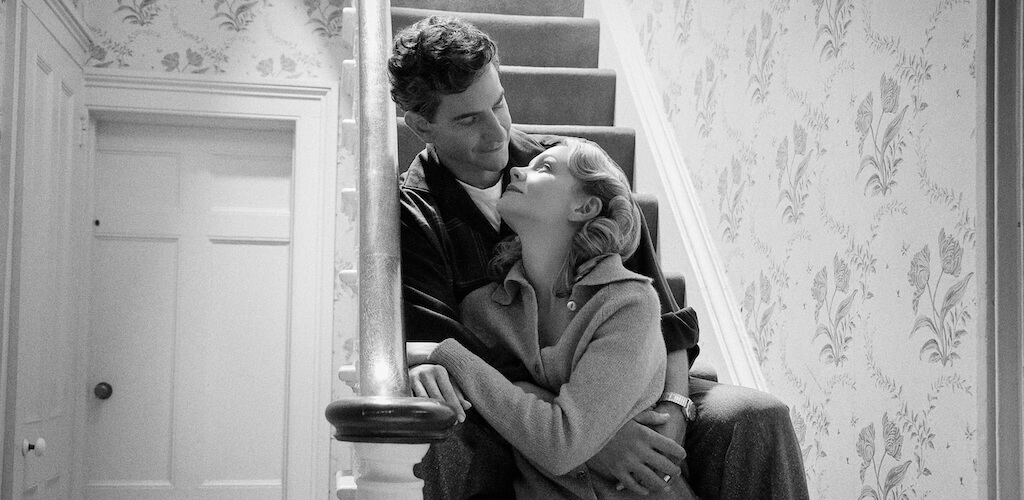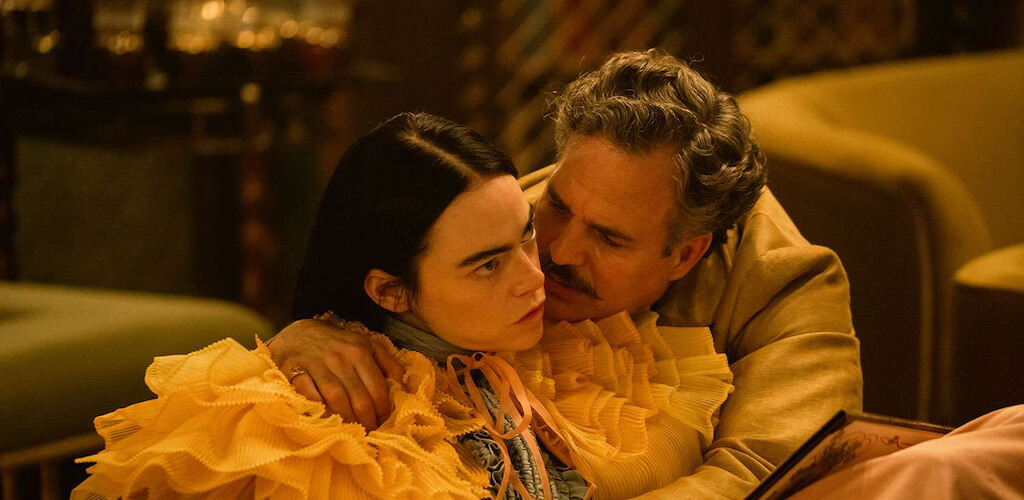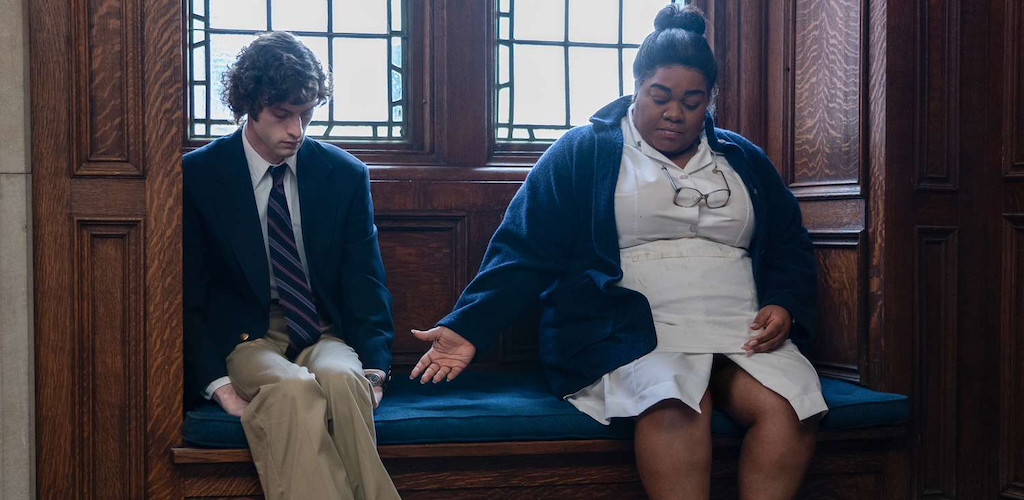Just like that, the 2023 movie season is coming to a close, and what a season it was! 2023 gave us the best slate of releases in recent memory. Over the last two years, each notable director came out of the woodwork with their latest work, and it feels like every one of them has been at the top of their game.
Now all eyes are on March 10. The Oscars. The moment we’ve all been waiting for, where Hollywood and movie fans across the world gather together to celebrate another year of film. The Academy won’t get it right. They never do. But that’s beside the point. The Oscars are always about more than winners and losers; they’re about the power of movies themselves. But that won’t stop us from picking our favorites nonetheless. Picking who will win is a fool’s errand, which is why we always pick who should win.
Below is part one of our picks for who should win the gold on Oscar night with part two to follow close behind. We hope you’ll join us on March 10 for our annual live chat as all of our writing and podcasts culminate in one final night of the 2023 season. After the long days of Covid where it seemed like movies may never return to their former glory, we needed a year like this one. Movies are officially back, and we’re ready to celebrate them.
Best Adapted Screenplay

Oppenheimer
The Zone of Interest
Barbie
American Fiction
Poor Things
The scripts for Oppenheimer and The Zone of Interest are the worst things about both films. For Oppenheimer, I blame Christopher Nolan for abandoning his writing partner and brother Jonathan Nolan who helped create masterpieces like Memento. The script for Oppenheimer is a slog filled with long conversations, legal proceedings, and structural problems that detract from the most interesting thing about the film: the bomb.
By contrast, there’s nothing inherently wrong with the script for The Zone of Interest. It’s just not the point of the film. Hedwig talking with her mother for ten minutes about her garden isn’t notable on its own. But when coupled with the sounds of Auschwitz in the background, the banality of the dialogue takes on profound layers. All the same, it’s difficult to pick a script filled with dialogue that only works in context.
Barbie is the first movie of the category where the writing is a true standout. Greta Gerwig and Noah Baumback pack their script with clever satire and fresh takes on feminism. Not every joke works, but enough do to make Barbie one of the highlights of the year. Perhaps the best testament to its worthiness is the fact that the monologue spoken by America Ferrera near the end of the film singlehandedly earned her an Oscar nomination.
What I wouldn’t give for more scripts like American Fiction. The writing is honest and authentic, while still being funny and entertaining. It’s filled with surprises at every turn, but remains grounded. And it has bold things to say about race and stereotypes without feeling preachy. Watching this movie was a delight from start to finish, and that’s in no small part to the extraordinary writing by Cord Jefferson and Percival Everett.
Part of me still thinks American Fiction should take home the Oscar, but there’s just something too unique and quirky about the writing in Poor Things to not give it the edge. There is no script quite like this one and there never will be again. Tony McNamara and Alasdair Gray create a world with its own language and rhythm. It’s Victorian London from an alternate universe. I loved Bella’s euphemisms for sex like “furious jumping.” The writing is sharp at every turn, albeit profane and over-the-top. I don’t blame anyone for being turned off by Poor Things, but you can’t help but admire the sheer creativity in each turn of phrase. Love it or hate it, this is great writing worthy of the gold.
Best Original Screenplay

The Holdovers
May December
Past Lives
Anatomy of a Fall
Maestro
The Holdovers is a good script with three dimensional characters, memorable dialogue, and interesting observations on the human condition. I just wish it had a more robust third act. David Hemingson sets up a beautiful arc between his central characters and then doesn’t finish it with the appropriate depth. The result is a missed opportunity.
I still can’t believe this is the only Oscar nomination for May December, but the writing is clearly a standout. Grace and Elizabeth circle around Joe like predators, each taking advantage of his innocence in their own way. The metaphor of the butterfly and its life stages reigns throughout, reminding us of what happens when that order is disrupted. Natalie Portman’s Elizabeth gets the best lines. As she casually instigates an affair with Joe, she shows us her true colors by saying “this is what adults do.” And then comes the final haunting scene, a movie within a movie, where Elizabeth delights that her scene is becoming “more real” with every take. This is layered writing by Samy Burch that leaves a mark.
Past Lives is the epitome of restraint and the script is no exception. But there’s something so beautiful about its simplicity. It’s not so much about the words as the spaces between them. The pauses. The things left unsaid. I was particularly struck by the tender inclusion of Nora’s boyfriend Arthur. When Nora’s lifelong connection comes to town, Arthur could have been consumed by jealousy. Instead, he asks the appropriate questions and gives them both space. Nora and Arthur’s late night conversations in bed are vulnerable and authentic. Why are we with the people who lie next to us at night? What choices brought us to them? What would our lives look like if we had made different ones? These are the questions writer/director Celine Song asks with a deft subtlety that proves powerful.
Anatomy of a Fall is a courtroom drama first and foremost. The script by Justine Triet and Arthur Harari has all the blistering back and forths and surprise witnesses that you’d expect from the genre. But what makes the writing Oscar-worthy is the dance between what we see and what we don’t see. We begin from Sandra’s perspective, so naturally our sympathies lie with her. Then troubling details emerge that make us question everything. And by the end we realize that the movie isn’t about what happened, but how we can never truly know what happened. Beyond a reasonable doubt still leaves room for doubt. As the court liaison expresses to Daniel in the most memorable moment in the script, the evidence can only take us so far. We ultimately have to make a choice. The haunting reality that “truth” can come down to a choice leaps off the page into our nightmares.
The acting and directing are so dazzling in Maestro that it’s easy to forget how good the writing is too. The script feels like old-fashioned Hollywood. The dialogue is elevated, but true. The words dance together like the notes in one of Leonard Bernstein’s compositions. Consider Felicia’s recurring line: “If the summer doesn’t sing in you, then nothing sings in you. And if nothing sings in you, then you can’t make music.” No one talks like that, but what if we could? That’s what movies are for. There are so many little moments like that in Maestro that compliment the flashier scenes. Like Felicia musing at one point: “All you need, all anyone needs, is to be sensitive to others. Kindness. Kindness. Kindness.” Maestro is about a great artist. How fitting for the script about his life to be a work of art in its own right. Bradley Cooper has only written two scripts and both of them have been nominated for Oscars. If he wins on Oscar night, he should stand in front of his colleagues and echo his own line from the film: “Any questions?”
Best Supporting Actor

Ryan Gosling — Barbie
Robert De Niro — Killers of the Flower Moon
Sterling K. Brown — American Fiction
Robert Downey Jr. — Oppenheimer
Mark Ruffalo — Poor Things
Ryan Gosling played the perfect Ken in Barbie. He was handsome, ignorant, and laugh-out-loud funny. You couldn’t ask for a better actor in the role. But does he deserve an Oscar? I think that’s a stretch. A performance can be perfect for the movie without being one of the five best of the year.
Robert De Niro has played similar roles to William Hale in Killers of the Flower Moon, but there’s something uniquely sinister about this one. It’s that charm De Niro has; the grandfatherly smile that puts you at ease and makes you believe everything will be okay. Leonardo DiCaprio’s Ernest believes that smile and we do too. Eventually we see the truth, but we see it too late. Hale is a psychopath capable of fooling an entire community of his benevolence while murdering them and stealing their inheritance in cold blood. Scripture says the devil disguises himself as an angel of light. It’s an abused verse that often results in seeing evil where it doesn’t exist. But there are true devils that walk among us. Predators who prey on victims and swallow them whole before they even realize they’re being eaten. That’s William Hale, and De Niro plays him to perfection.
Sterling K. Brown is an absolute delight as Cliff in American Fiction. Cliff is a younger brother to Monk (Jeffrey Wright) in all the annoying ways that younger brothers are. Where Monk tries to be the responsible one in the family, Cliff is just out to have a good time. He razzes Monk every chance he can get with some of the best jokes in the movie, and it’s hard to fault him for it when Monk is so hell-bent on feeling superior to everyone around him. But as the movie progresses, we see a third dimension to Cliff. He’s not just out for a laugh, he’s coming to grips with his identity as an openly gay man. His parents rejected him long ago and his brother never calls. There’s a poignant backstory to his character that makes his present-day antics endearing. But most importantly he feels like a real sibling in a real family. That’s a credit to writer/director Cord Jefferson above all else, but it’s also because of these actors giving career-best performances worthy of an Oscar.
At first glance, Robert Downey Jr. has played similar characters to Lewis Strauss in Oppenheimer. He’s fast-talking and arrogant, not unlike Tony Stark or Sherlock Holmes. But look closer and there’s an intensity and ruthlessness that we’ve never seen before. Downey is locked in here and it’s frightening to behold. Strauss holds on to his grudges and he plays the long game. He’ll smile and hug you and then stab you in the back, all while rationalizing his behavior as being for the greater good. There’s little doubt that Downey will receive his first Oscar for Oppenheimer and it’s well deserved. He’s overcome addiction and formed an incredible career. Lewis Strauss may very well be his best performance, but there was a better one in 2023.
And the Oscar should go to… Mark Ruffalo. Of all the performances I watched last year, Ruffalo’s Duncan stood out the most. To be fair, I’ve always loved Mark Ruffalo ever since he’s debut turn as a leading man in You Can Count On Me. He’s the whole package as an actor. He can play any role, and he also seems like a genuine person you could grab drinks with on a Friday night. Duncan, however, is the opposite. He’s a classic narcissist who seduces women and discards them without a second thought. But he meets the match of his life in Bella (Emma Stone). Bella is naive enough to not buy into his tricks and she systematically destroys his life without even meaning to. Duncan’s fall from grace is hilarious and absurd like everything else in Poor Things, but Ruffalo still grounds him in a way that feels true. After years of watching Ruffalo play the Hulk, it’s so refreshing to see him be a character again. And it’s a character unlike any other in his career. The accent. The period costume. The indignation. Just thinking about him makes me smile. Sometimes the perfect material finds the perfect actor and the result is magic. This is one of those times. Robert Downey Jr. will win the Oscar, but Ruffalo gave the best performance of the year.
Best Supporting Actress

America Ferrera — Barbie
Emily Blunt — Oppenheimer
Jodie Foster — Nyad
Danielle Brooks — The Color Purple
Da’Vine Joy Randolph — The Holdovers
I have nothing against America Ferrera. She’s a good actress who plays her part in Barbie well. But this is simply not an Oscar-worthy performance. There’s nothing here that rises to the level of extraordinary. Only one scene comes close: the monologue on women near the close of the film. It’s a well-written speech and delivered perfectly by Ferrera, but one monologue isn’t enough for the gold. Especially not when stacked against the other performances in this category.
Emily Blunt is downright scary at times in Oppenheimer. When Oppenheimer comes home and finds her drinking with the kids in a play pen, he calls her on it and she erupts in a rage. There’s no excuse for that behavior, but let’s also not forget the hell that Oppenheimer put her through. Gone all the time, lost in his work. Cheating on her with a manic depressive. This was far from the ideal marriage. Blunt is cold as ice through most of the film. The intensity of her resentment and rage is palpable. And yet, there’s a flicker of warmth too. Kitty genuinely loved Oppenheimer and stuck by him when most would have fled. It’s a complex performance worthy of the nomination.
Jodie Foster’s Bonnie is the polar opposite of Kitty. She’s a warm, cheerful, supportive woman. And loyal to a fault. Those personalities are ripe for co-dependency, and that’s exactly what she becomes trapped in with Diana. Everything that makes her the perfect coach for Diana’s voyage also leaves her lacking boundaries and care for her own needs. I felt the weight of that struggle because it’s something I’ve had to address in my own life. My favorite moment is when Bonnie returns to Diana and explains the conditions of agreeing to be her coach again. She fights through tears to not be interrupted and say what needs to be said. And in that moment, she reveals the antidote to co-dependency: loving yourself so you can properly love others. It’s touching and powerful. Jodie Foster is a tremendous actor who gave another great 2023 performance in Max’s True Detective: North Country. She’s 61 and better than ever.
The Color Purple should never have been a musical. It’s a baffling choice for the subject matter and overshadowed some truly great performances, like Danielle Brooks as Sofia. Sofia bursts on screen like she’s been sent from another world. This is the early 1900’s. Racism was rampant, and women were essentially slaves of their husbands with no right to divorce. Now in walks Sofia; a strong, joyful, independent woman who clearly is the one in charge wherever she goes. That alone would have made her the standout, but then comes her character arc where she says the wrong thing to a white woman and ends up in jail. She emerges a broken shell of the woman she once was, thoroughly beaten down by a unjust system designed to do just that. Her joy and confidence are destroyed as she becomes a symbol of oppression. Brooks showed flashes of greatness in Orange is the New Black, but this is the performance of her career. Unfortunately, this year there was a better one.
Da’Vine Joy Randolph’s Mary is the epitome of everything this category is designed to embody. This is a true supporting performance. Randolph is on screen the perfect amount of time and uses every scene to make her mark. Mary is a woman drowning in grief. Her son was recently killed in Vietnam and she has to shoulder that burden without a partner. And yet, somehow Mary carries on. Even though that means getting through a thankless job where she makes food for spoiled students who do nothing but complain. Mary is strong, gracious, and kind, but she’s also not afraid to speak the truth. And that truth is often needed with a man like Paul (Paul Giamatti). Mary is the one who spurs Paul on to become a better version of himself, but sometimes the grief becomes too much for even Mary to bear. The standout scene of both Randolph’s performance and the film is a Christmas party where Mary drinks too much and causes a scene. You’d have to be without a soul to not tear up at Mary’s raw grief in the kitchen as she cries out for her lost son. It’s every parent’s worst nightmare. But then the next day, Mary wakes up and begins again. We need more Mary’s in this world. Her quiet strength and dignity are an inspiration to us all. Randolph is the heart and soul of The Holdovers and she deserves to hold her Oscar high on March 10.
To Be Continued…
Check back next week for part two of our Oscar coverage as we pick Best Actor, Best Actress, Best Director, and Best Picture!





